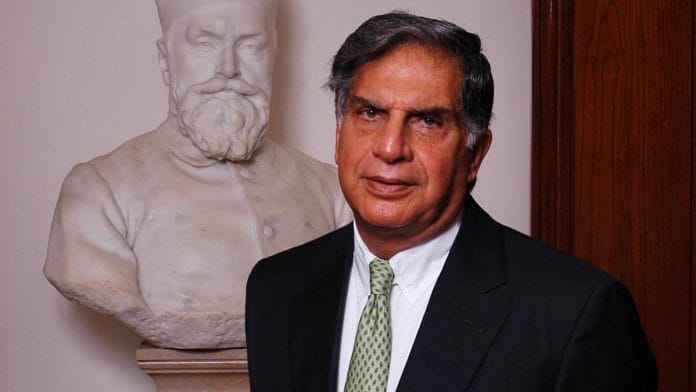I cannot claim to have been Ratan Tata’s friend, nor can I claim to have had a professional relationship with him for any significant length of time. Yet, for a short period between 1985 and 1988, I had the opportunity to interact with him intensely on what became one of the most bitterly fought battles over the entry of a dreaded American consumer product multinational—PepsiCo—into India. They used investment in the agro/food processing business route as a means to justify their entry, with the Punjab government, through the Punjab Agro Industries Corporation (which I was the CEO of), and the Tatas, through Voltas.
To recapture the context—Punjab was in the throes of terrorism and an unprecedented political, economic, and social crisis. Rajiv Gandhi had just come into power after his mother’s assassination, and though the first signs of liberalisation of the licence-quota Raj were beginning to show, the system was still largely suspicious of the private sector, particularly notorious multinationals like Coca-Cola, PepsiCo, or IBM.
The Tatas, though known as industrial giants, were also beginning to see some disruptions in their corporate management structure, with Ratan Tata designated as JRD’s heir apparent. His rise would see the end of many Tata satrapies—Rusi Modi, Darbari Seth, AH Tobaccowala, Ajit Kerkar, et al—and a newer, bolder, more techno-savvy way of functioning. The Tatas were (and probably still are) very governmental in their ways of working—very hierarchy conscious, very strict in professional conduct rules and procedures. Each satrap was a fierce and jealous defender of his turf, and though observant of exceptionally high ethical standards, very, very bureaucratic. I used to jokingly refer to Ratan as the Additional Secretary to the Government of Tatas because he had the vision to be the leader, but was not yet invested with the authority.
Also Read: Want to go to bed feeling I haven’t succumbed—what Ratan Tata said on dodging corruption in 2010
A labyrinthine exercise
Into this complex milieu came the Punjab Agro, Voltas, PepsiCo tripartite collaboration project proposal. I was fronting the project as the lead partner because in the complex political situation prevailing at that time, the Punjab government’s interests would be viewed with less hostility than if either the Tatas or PepsiCo were to take the lead. We knew full well that the proposal would precipitate a major controversy, though we thought we could contain the fallout. So, before we filed the application for an industrial licence and foreign collaboration approval (difficult to imagine now how tough it was to get government approvals for a perfectly legitimate venture), we leveraged the personal relationship between Captain Amarinder Singh, then agriculture minister in the Surjit Singh Barnala government in Punjab, and Rajiv Gandhi. We hoped that if we could get Rajiv’s nod, we could quietly push the project through.
When we broached the subject with Rajiv Gandhi, through Amarinder Singh, he suggested that a point person from Punjab—which was I—and Ratan Tata from the Tatas should coordinate with Montek Singh Ahluwalia in the PMO, who would help the proposal be navigated through the labyrinthine corridors of the government and political system. Little did we realise that the moment we formally filed the application, all hell would break loose, and for the next two years the project would become the most controversial one in India’s business history.
It was at that time that I had occasion to interact with Ratan and with his two very able deputies in Delhi—Sujit Gupta and Zahid Baig. With Ramesh Vangal in PepsiCo, located in Delhi, we, the three partners, spent two intense years of lobbying, advocacy, communication, politics, and negotiations with the system at multiple levels, complementing each other’s strengths.
Also Read: ‘Certainly not the home of India’s richest conglomerate head’ – How Ratan Tata lives
One of a kind
The story of our battle deserves a longer telling, but this is just to reflect on what I came to know of Ratan.
First, in the fuddy-duddy world of the Tatas, he brought in a fresh new vision which was bold, techno-savvy, and free of bureaucracy (corporate bureaucracy is as deeply entrenched as that of the Government). He had new ideas and was open to shaking things up.
Second, his political naiveté and his complete inability to engage in the ‘deal-fixing’ culture of Indian businesses made him a great ally. Third, his passionate commitment to technology, invention, and innovation made him a professional of great standing in his peer group. Fourth, was his unwavering commitment to ethics and professional standards of conduct, even if it meant sacrificing his business interests. In this, he truly stood out.
For all these reasons, I came to admire him hugely. They don’t make them like him anymore. RIP Ratan.
The author is a retired secretary to the Government of India. Views are personal.
(Edited by Asavari Singh)






